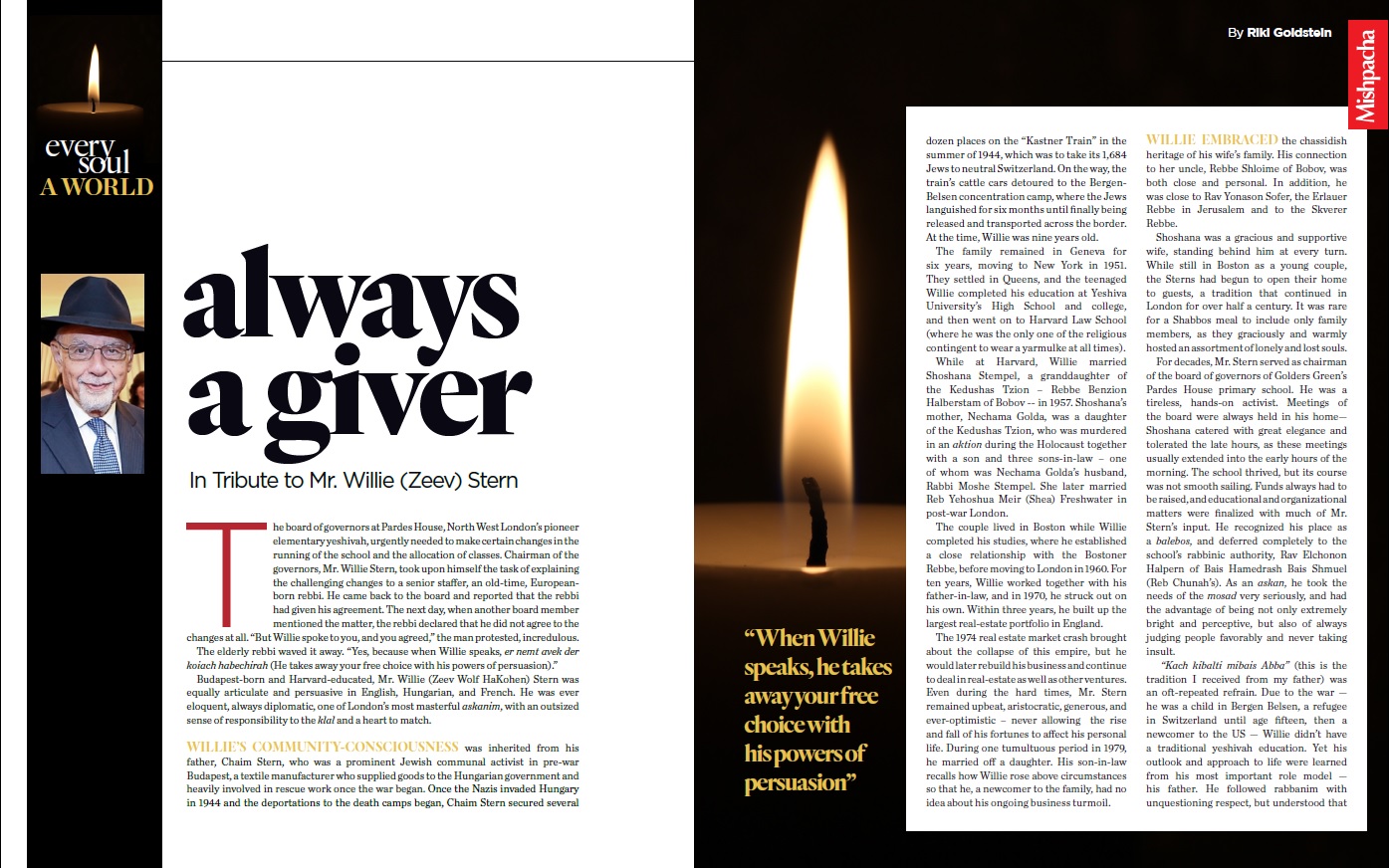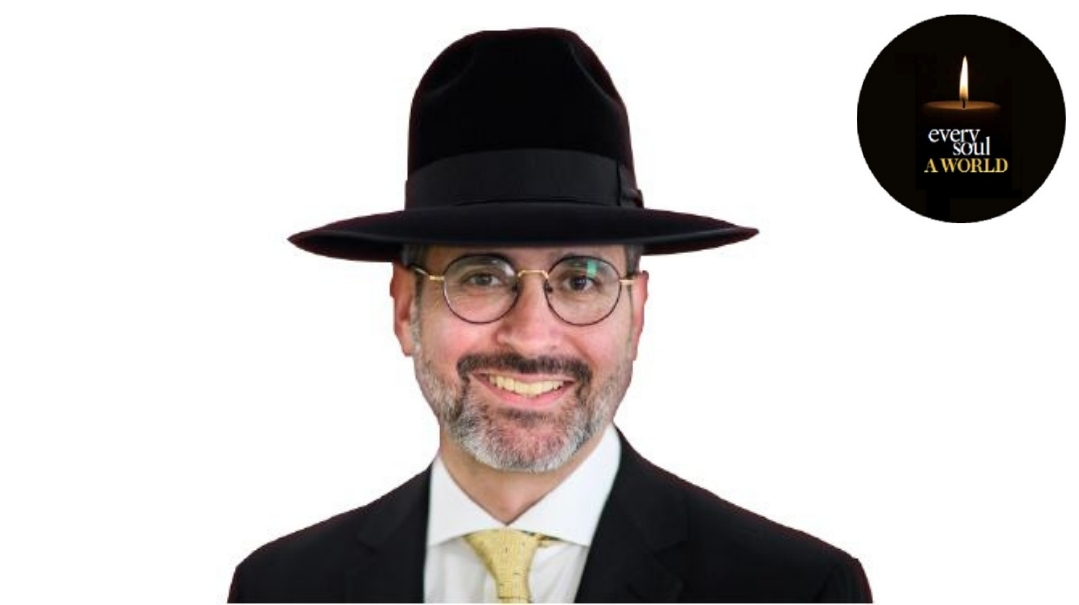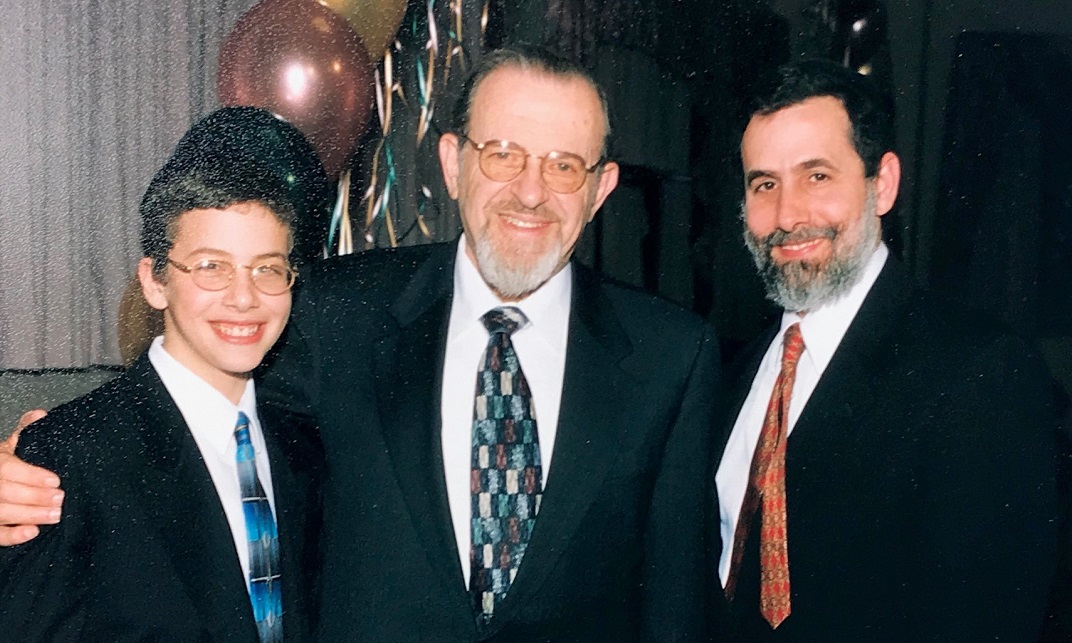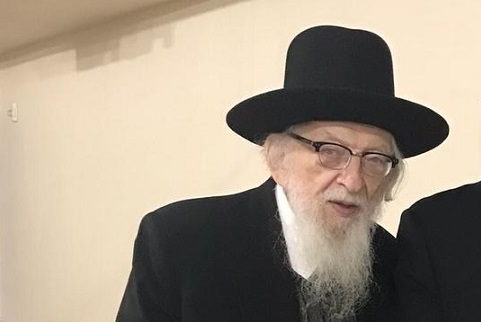Mr. Willie (Zeev) Stern
| April 22, 2020Always a Giver
T

he board of governors at Pardes House, North West London’s pioneer elementary yeshivah, urgently needed to make certain changes in the running of the school and the allocation of classes. Chairman of the governors, Mr. Willie Stern, took upon himself the task of explaining the challenging changes to a senior staffer, an old-time, European-born rebbi. He came back to the board and reported that the rebbi had given his agreement. The next day, when another board member mentioned the matter, the rebbi declared that he did not agree to the changes at all. “But Willie spoke to you, and you agreed,” the man protested, incredulous.
The elderly rebbi waved it away. “Yes, because when Willie speaks, er nemt avek der koiach habechirah (He takes away your free choice with his powers of persuasion).”
Budapest-born and Harvard-educated, Mr. Willie (Zeev Wolf HaKohen) Stern was equally articulate and persuasive in English, Hungarian, and French. He was ever eloquent, always diplomatic, one of London’s most masterful askanim, with an outsized sense of responsibility to the klal and a heart to match.

WILLIE’S COMMUNITY-CONSCIOUSNESS was inherited from his father, Chaim Stern, who was a prominent Jewish communal activist in pre-war Budapest, a textile manufacturer who supplied goods to the Hungarian government and heavily involved in rescue work once the war began. Once the Nazis invaded Hungary in 1944 and the deportations to the death camps began, Chaim Stern secured several dozen places on the “Kastner Train” in the summer of 1944, which was to take its 1,684 Jews to neutral Switzerland. On the way, the train’s cattle cars detoured to the Bergen-Belsen concentration camp, where the Jews languished for six months until finally being released and transported across the border. At the time, Willie was nine years old.
The family remained in Geneva for six years, moving to New York in 1951. They settled in Queens, and the teenaged Willie completed his education at Yeshiva University’s High School and college, and then went on to Harvard Law School (where he was the only one of the religious contingent to wear a yarmulke at all times).
While at Harvard, Willie married Shoshana Stempel, a granddaughter of the Kedushas Tzion – Rebbe Benzion Halberstam of Bobov -- in 1957. Shoshana’s mother, Nechama Golda, was a daughter of the Kedushas Tzion, who was murdered in an aktion during the Holocaust together with a son and three sons-in-law – one of whom was Nechama Golda’s husband, Rabbi Moshe Stempel. She later married Reb Yehoshua Meir (Shea) Freshwater in post-war London.
The couple lived in Boston while Willie completed his studies, where he established a close relationship with the Bostoner Rebbe, before moving to London in 1960. For ten years, Willie worked together with his father-in-law, and in 1970, he struck out on his own. Within three years, he built up the largest real-estate portfolio in England.
The 1974 real estate market crash brought about the collapse of this empire, but he would later rebuild his business and continue to deal in real-estate as well as other ventures. Even during the hard times, Mr. Stern remained upbeat, aristocratic, generous, and ever-optimistic – never allowing the rise and fall of his fortunes to affect his personal life. During one tumultuous period in 1979, he married off a daughter. His son-in-law recalls how Willie rose above circumstances so that he, a newcomer to the family, had no idea about his ongoing business turmoil.
WILLIE EMBRACED the chassidish heritage of his wife’s family. His connection to her uncle, Rebbe Shloime of Bobov, was both close and personal. In addition, he was close to Rav Yonason Sofer, the Erlauer Rebbe in Jerusalem and to the Skverer Rebbe.
Shoshana was a gracious and supportive wife, standing behind him at every turn. While still in Boston as a young couple, the Sterns had begun to open their home to guests, a tradition that continued in London for over half a century. It was rare for a Shabbos meal to include only family members, as they graciously and warmly hosted an assortment of lonely and lost souls.
For decades, Mr. Stern served as chairman of the board of governors of Golders Green’s Pardes House primary school. He was a tireless, hands-on activist. Meetings of the board were always held in his home—Shoshana catered with great elegance and tolerated the late hours, as these meetings usually extended into the early hours of the morning. The school thrived, but its course was not smooth sailing. Funds always had to be raised, and educational and organizational matters were finalized with much of Mr. Stern’s input. He recognized his place as a balebos, and deferred completely to the school’s rabbinic authority, Rav Elchonon Halpern of Bais Hamedrash Bais Shmuel (Reb Chunah’s). As an askan, he took the needs of the mosad very seriously, and had the advantage of being not only extremely bright and perceptive, but also of always judging people favorably and never taking insult.
“Kach kibalti mibais Abba” (this is the tradition I received from my father) was an oft-repeated refrain. Due to the war — he was a child in Bergen Belsen, a refugee in Switzerland until age fifteen, then a newcomer to the US — Willie didn’t have a traditional yeshivah education. Yet his outlook and approach to life were learned from his most important role model — his father. He followed rabbanim with unquestioning respect, but understood that a layman has an important role too. He gave of his considerable talents and resources to the community out of a sense of responsibility, and always tried to create a kiddush Hashem in the wider world.
THE STERN OFFICES were near Imperial College, one of London’s universities, and Mr. Stern didn’t squander the opportunity. He established a kosher canteen for Jewish students which offered them lunch for a nominal price (which he then donated to a charity for special-needs children), set up a minyan for Minchah, and made sure there was a warm place for the Jewish students to hang out together. [In a shivah letter to his family from a former student, she wrote how she’d been a lunchtime regular, and when she invited Mr. Stern to her wedding, a four hours’ drive away in Manchester, he came.]
Decades later, Mr. Stern repeated that success on foreign shores. When his business affairs moved to Eastern Europe, he was in Kaunas (Kovno) when he saw that the local medical school had a large contingent of Israeli students. Dedicating himself to their needs, as he had done so many times before with so many other projects, he established the city’s Moadon Yehudi, a hub for Jewish students which offered them kosher food, Shabbos meals and social and educational programming. He also sponsored two couples from Israel to staff the Moadon. It soon became a vibrant kiruv center which continues to host hundreds of Jewish students every year.
Willie Stern viewed intermarriage, the permanent loss of thousands of years of carefully preserved mesorah, as the ultimate tragedy. By offering the students opportunities to mingle and bond with each other, he hoped to do his part for their Jewish future.
Mr. Stern had magnetic charm and eloquence; always gentlemanly, he was able to give others strength and encouragement -- whether it was to push them forward in their careers, or to enhance their self-esteem. Helping others get onto their feet was not about throwing money to them but came along with the advice, emotional support, or listening ear that they needed. He lent money generously to start-ups, and served as a guarantor on countless bank loans. And yet he was not above personally accompanying meshulachim from Eretz Yisrael to knock on doors and fundraise in London.
As a father, grandfather, and great-grandfather, Willie Stern was in his element. He would go anywhere, do anything, for his children, and they in turn consulted him on every facet of their lives. Pesach was the highlight of the year for this tradition-conscious clan, when children and grandchildren assembled from Eretz Yisrael and America to spend Yom Tov with their grandparents. Until a week before his petirah, Willie, 84, was still on top of the arrangements.
In a sense, Mr. Stern’s goal in life was to perpetuate the mesorah of his father and his family’s illustrious progenitors. Fortunately for the London community and for Jews around the world, he had broad shoulders to stand on, and the gifts and humility to keep on giving.
VIEW/DOWNLOAD PDF FORMAT
Oops! We could not locate your form.














